
GIVE THIS RAMADAN
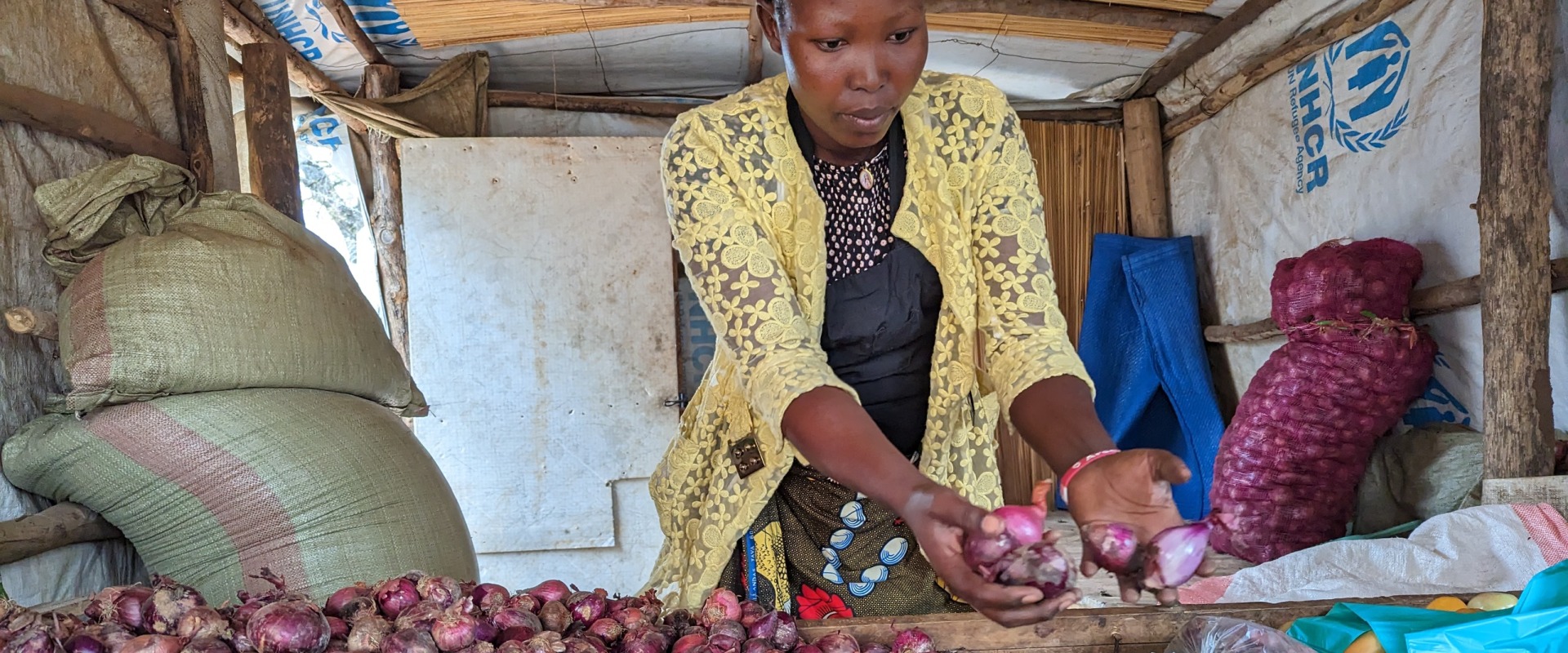
When we sit down to eat, we often take what happens before the food reaches our plates for granted. Take, for instance, a peanut butter and jelly sandwich. Before you purchased the peanut butter at your local supermarket, a team of people planted the peanuts, cultivated them, harvested them, collected them, stored them, ground them, packaged them, shipped them, and then sold them to the food supplier.
In Uganda, the steps in the food production chain are not always an easy or straight-forward path. Action Against Hunger is working across Uganda to boost farmers’ agricultural production and market engagement to improve livelihoods, boost local food systems, and strengthen local markets. This Value Chain and Market Linkage project has helped nearly 2,800 farmers to gain access to larger markets, allowing them to reach more customers. As part of the program, farmers from 30 Farmer Field Schools sold over 10,000 bags of cassava cuttings, collectively earning nearly $50,000.
For the first time in years, these farmers are able to use their income to thrive rather than just survive.
Zubeda Afra, one vendor from Yumbe District, once struggled to make ends meet. Now, she works with large-scale farmers and makes a profit selling a variety of their in-demand vegetables at her market.
“The reason we are working with these farmers [is because] they cultivate on a large scale and they supply us at any time,” she said, noting that they are producing everything from tomatoes to eggplants to watermelon. “We are now getting profits on vegetables.”
Another market vendor, Fayima Atiah, is also grateful for the new connection with large-scale farmers. “We did not have any local produce supplier,” she said, noting that she used to travel far to obtain produce. “Now, we do not need to spend money on transport, but we repurpose it for our children’s school fees.”
Strengthening a community’s value chain can help reduce inequality. It ensures that at each stage of production, a worker is compensated for their labor.
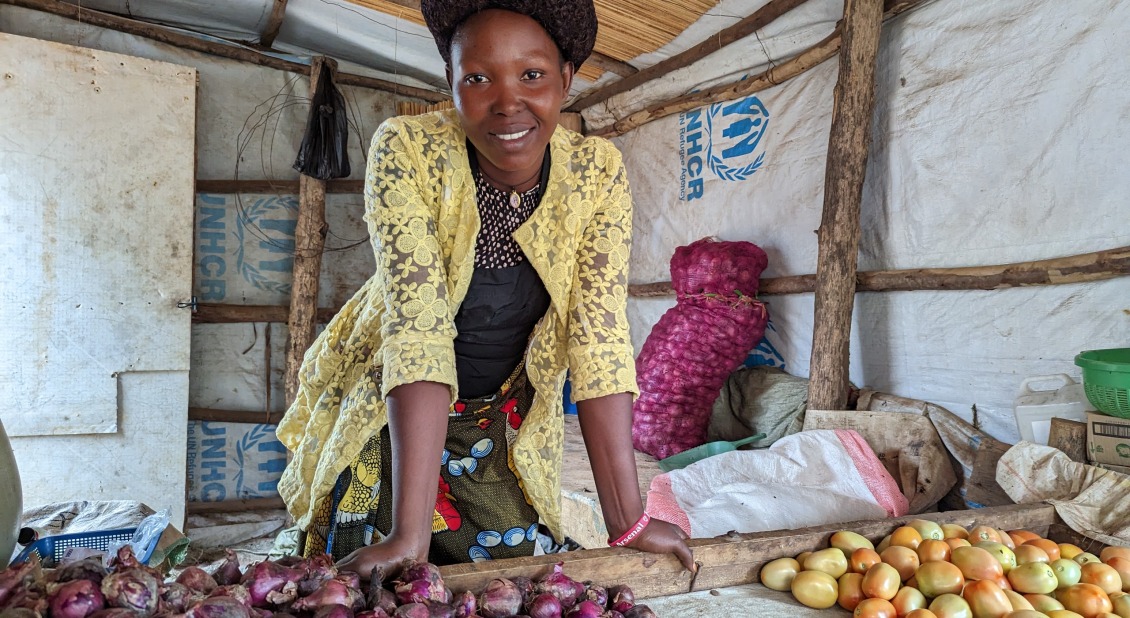
“Sim sim [sesame seeds] and cassava alone is estimated to annually gross about $4.8 million dollars in trade,” said Albert Azu, the project’s Value Chain Development Manager. “However, the farmers who are the ‘weaker’ players in the sector do not seem to receive a fair share of the benefits from the sector. Largely because the marketing system works in favor of the much stronger players, like the traders and the export companies.”
Now, Action Against Hunger’s program is ensuring farmers gain access to better markets for their produce. Farming communities have become more organized. Meet Vickson Abiriga from the Terego District, for example. The project launched a Marketing Committee, which trained Abiriga through group coaching, mentorship, and simulating a marketing environment. He now serves as the Marketing Committee Chairperson and keeps farmers in his community informed about the fluctuations in prices and products in different markets.
“[The program] has helped me to understand the market per produce, and they bring us a list of pricing of produce in each different market,” he said. “This has helped me mobilize my community on marketing produce.”
Although Uganda has the land and human resources to expand crop production, many farmers lack the resources to grow their profits. Some are preoccupied with finding access to basic necessities, such as clean water or food for their families. Uganda has suffered from climate shocks, conflict, and inequality, leaving much of the population to only prioritize the day to day.
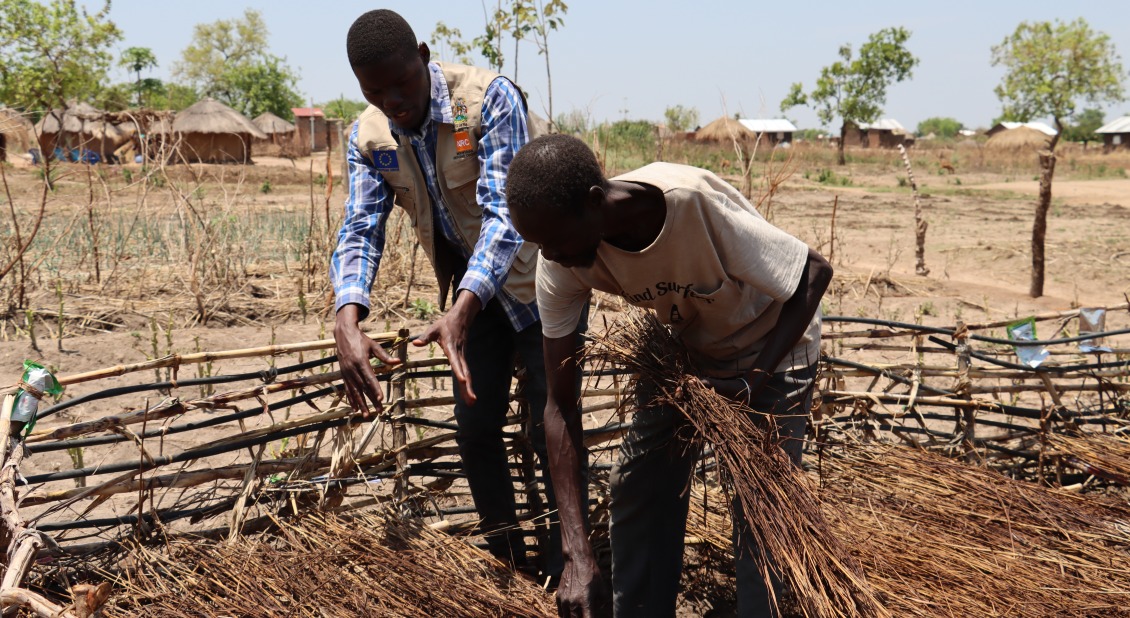
Throughout all of Uganda, the amount of sesame bought by traders—most of whom work for export companies—equals 4,600 tons, which is worth $4 million dollars. However, research suggests that the country has the potential to produce 13,000 billion tons of sesame, worth $11 million dollars, more than double the current gross income.
“But this is not achieved due to constraints in production and marketing of the crop,” said Azu. “The project stepped in to help farmers in the sesame value chain.”
The project has helped many farmers increase the production of sesame, and now, community members across Uganda are demonstrating their resilience and learning to take one step further in their careers. The country has one of the world’s largest refugee populations, so both refugees and local Ugandans are working together on this initiative. Refugees who have lost their livelihoods are now partnering with host communities to achieve new goals.
More than 3500 farmers—both refugees and host community members—are working on a project to address challenges in sesame production. Project staff have distributed high-yielding seeds, trained farmers on good agronomic practices, and provided animal to plow acres for planting. As a result, in 2020, nearly 1200 acres of sesame was grown, which produced nearly 260 metric tons.
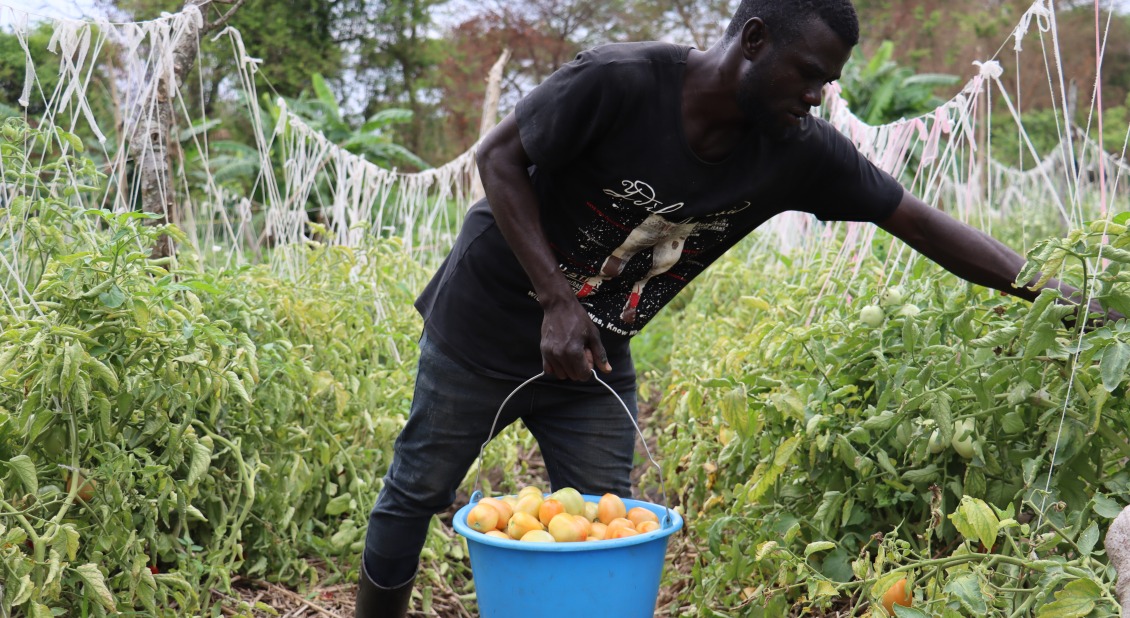
“Finding a market and selling produce at a price you appreciate as a farmer has been the biggest obstacle for farmers to sustain agriculture,” Charles Wabwire, the project coordinator, said. “The project has really opened the eyes of the farmers to the possibility of agriculture being a business to earn income—besides just feeding the family.”
About the Project
The European Union Emergency Trust Fund (EUTF) Response to Increased Demand in Government Service and Creation of Economic Opportunities in Uganda (RISE) Project, organized by a consortium of nonprofit organizations and spearheaded by Action Against Hunger, launched the Value Chain and Market Linkage program throughout several villages in Uganda. Action Against Hunger’s partners include the Norwegian Refugee Council (NRC), Welthunger Hilfe (WHH), PALM Corps, and local communities in the Arua, Adjumani, and Yumbe districts of West Nile, Northern Uganda. Since 2019, EUTF RISE has improved the lives of nearly 150,000 refugees and members of their host communities.
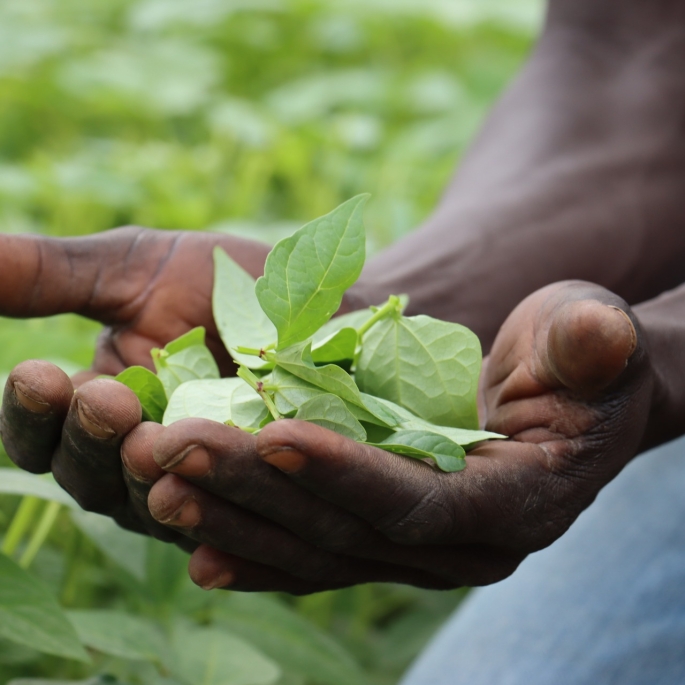
Click here to learn more about Action Against Hunger’s work to support refugees and communities in Uganda.
Join our community of supporters passionate about ending world hunger.